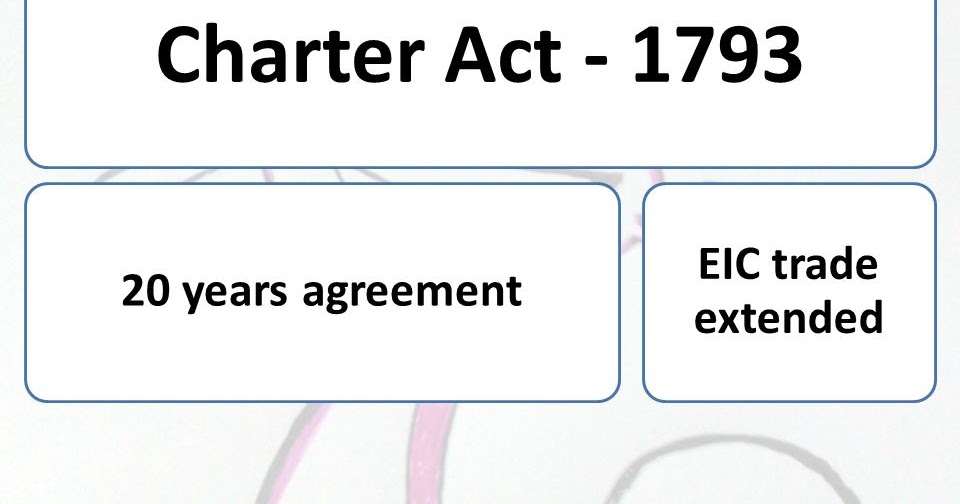Charter Act of 1793-Indian History Notes For W.B.C.S Examination
The East India Company Act 1813, also known as the Charter Act of 1813, was an Act of the Parliament of the United Kingdom which renewed the charter issued to the British East India Company, and continued the Company’s rule in India. However, the Company’s commercial monopoly was ended, except for the tea and opium trade and the trade with China. Reflecting the growth of British power in India.Continue Reading Charter Act of 1793-Indian History Notes For W.B.C.S Examination.
- This Act continued the company’s rule over the British territories in India.
- It continued the company’s trade monopoly in India for another 20 years.
- The Act established that “acquisition of sovereignty by the subjects of the Crown is on behalf of the Crown and not in its own right,” which clearly stated that the company’s political functions were on behalf of the British government.
- The company’s dividends were allowed to be raised to 10%.
- The Governor-General was given more powers. He could override his council’s decision under certain circumstances.
- He was also given authority over the governors of Madras and Bombay.
- When the Governor-General was present in Madras or Bombay, he would supersede in authority over the governors of Madras and Bombay.
- In the Governor-General’s absence from Bengal, he could appoint a Vice President from among the civilian members of his Council.
- The composition of the Board of Control changed. It was to have a President and two junior members, who were not necessarily members of the Privy Council.
- The salaries of the staff and the Board of Control were also now charged to the company.
- After all expenses, the company had to pay the British government Rs.5 Lakhs from the Indian revenue annually.
- Senior company officials were barred from leaving India without permission. If they did so, it would be considered as a resignation.
- The company was granted the authority to grant licenses to individuals and company employees to carry on trade in India. This was known as ‘privilege’ or ‘country trade’. This led to shipments of opium to China.
- This Act separated the revenue administration and the judiciary functions of the company leading to the disappearance of Maal Adalats (revenue courts).
Our own publications are available at our webstore (click here).
For Guidance of WBCS (Exe.) Etc. Preliminary , Main Exam and Interview, Study Mat, Mock Test, Guided by WBCS Gr A Officers , Online and Classroom, Call 9674493673, or mail us at – mailus@wbcsmadeeasy.in
Visit our you tube channel WBCSMadeEasy™ You tube Channel
Please subscribe here to get all future updates on this post/page/category/website



 Toll Free 1800 572 9282
Toll Free 1800 572 9282  mailus@wbcsmadeeasy.in
mailus@wbcsmadeeasy.in


















































































































